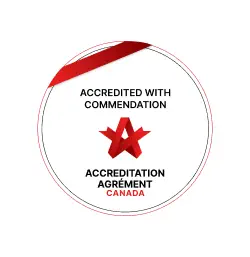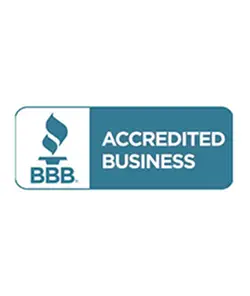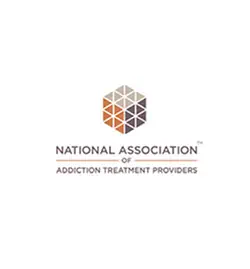 Success Rate:
Read Now
Success Rate:
Read Now
 Success Rate:
Read Now
Success Rate:
Read Now
Overcome cocaine addiction and rediscover your true self. Our dedicated treatment and rehab programs are designed to empower you on your journey to recovery. Together, we’ll pave the way to a brighter, addiction-free future!

Cocaine addiction develops rapidly, often trapping individuals in cycles they cannot break alone. This powerful stimulant rewires brain chemistry, creating dependencies that grow stronger with each use. Attempting recovery without professional guidance poses serious risks—dangerous withdrawal complications, overwhelming cravings, and high relapse rates that can lead to overdose.
Self-treatment approaches frequently fail because they cannot address the complex neurological and psychological changes cocaine creates. Professional cocaine addiction treatment provides medical supervision during withdrawal, evidence-based therapies to rebuild healthy thought patterns, and comprehensive support systems that significantly improve recovery outcomes.
Recovery becomes achievable when you receive qualified care from addiction specialists who understand cocaine’s unique challenges. Take that crucial first step toward professional treatment—your life depends on it.
At the Canadian Centre for Addictions, we take pride in our rehab accreditation, which ensures that our services meet the highest standards of care, providing you with effective and safe treatment.

Through our work alongside Accreditations Canada, we have earned the seal of approval from one of the largest and most respected organizations in health and patient care. They proudly endorse Canadian Centre for Addictions and we proudly carry their certification as a promise of quality care to our clients.

As a premier and professional rehabilitation facility, we are recognized as a top business in our field by the Better Business Bureau. Our dedication to operating as a legitimate and honest addiction treatment center helps us stand out to our community and those we wish to help.

As a member of this respected Canadian organization, we are part of a community of leaders in addiction specialists who put clients first. This helps us stay on top of trends and be a part of a movement of passionate professionals who truly want to make patient care a priority.
Freedom from addiction requires a continued connection to recovery. Our addiction centres offer aftercare addiction services accessible to all program graduates for life and available anywhere in North America. Canadian Centre for Addictions’s Lifetime Aftercare is an important tool that helps you maintain your new healthy life.

Knowing that you’re not alone is a crucial aspect of the journey to authentic addiction recovery. Group Counselling and Therapy is one of the many levels of addiction treatment care that can help people connect more directly with their addiction and the support needed to transition to the best version of yourself.

Canadian Centre for Addictions’s rehab centres help individuals understand their addiction and the healthier coping strategies available by engaging them in individual counselling with our Certified Addiction Counselors, Psychotherapists and other Mental Health Professionals.

Canadian Centre for Addictions’ inpatient rehab facilities in Cobourg, Ontario offer a safe, comfortable, 24/7, Medically Supervised Program that provides all of the professional addiction services needed to guide you to a healthy recovery. Providing Withdrawal Management and Detox Services as well as one-on-one Group Therapy treatments by Certified Addiction and Mental Health professionals. Canadian Centre for Addictions will explore many different treatment modalities to help develop and cultivate the tools needed to address and process the underlying issues that led to addiction in the first place.

Having a loved one who refuses to acknowledge their addiction or is in denial about it entirely can leave the family feeling helpless. Canadian Centre for Addictions offers Intervention Counselling from trained addiction professionals who will provide the coaching and facilitation necessary to have your loved one accept addiction help that will change their life.

Working one on one with a Certified Addictions Professional, Canadian Centre for Addictions’s addiction rehab programs explore outpatient treatment modalities that best resonate with you to develop healthier coping mechanisms that will address the underlying issues that led to addiction.

Several key factors influence how individuals respond to cocaine addiction treatment and determine the most effective recovery approaches. Understanding these elements helps addiction specialists design personalized care plans that address each person’s unique circumstances and treatment needs.

If you’re going through a tough time with cocaine addiction, you don’t have to face it alone. Our Luxury Private Rehab Centre in Port Hope and Cobourg are quiet, comfortable places in Ontario where you can take a real break and start fresh.
In Port Hope, our private rehab centre feels more like a peaceful retreat. Some rooms have calming lake views, a fireplace, and multiple decks to relax on. It’s a space to breathe, slow down, and focus on getting better. And with fresh, 5-star meals made by our chef every day, you’ll be well taken care of, body and mind, during your recovery journey.
Over in Cobourg, the vibe is just as warm and welcoming. It’s a place where you’ll be supported by people who truly care about your recovery from cocaine addiction and other substance dependencies. We’re here to listen, guide you, and help you feel more like yourself again.
Whether you’re looking for space to reflect or need professional support to move forward, our rehab treatment program centres in Port Hope and Cobourg offer the calm, care, and comfort you need to start your treatment and recovery process with confidence. These Ontario facilities provide the perfect environment for healing, combining luxury amenities with proven therapeutic approaches that address the unique challenges of cocaine addiction treatment recovery.
Cocaine withdrawal symptoms create both physical and psychological challenges that make recovery difficult without professional supervision. Understanding what to expect helps reduce anxiety about the process, while cocaine rehab centers provide medical support to manage these symptoms safely.

The psychological symptoms often prove most challenging. Intense cravings can feel overwhelming, driving individuals back to use despite their recovery intentions. Depression frequently becomes severe enough to interfere with basic self-care activities like eating or maintaining hygiene. Many experience anhedonia—a complete inability to feel pleasure from activities they once enjoyed. This emotional numbness can persist for weeks, making recovery feel hopeless.
Anxiety manifests differently across individuals. Some experience generalized worry that makes concentration nearly impossible, while others develop panic attacks triggered by everyday situations. Paranoid thoughts may create distrust of loved ones trying to help.
Physical symptoms add another layer of discomfort. Crushing fatigue makes simple tasks feel monumental. Appetite changes swing between a complete loss of interest in food and intense hunger that leads to rapid weight gain. Vivid nightmares disrupt what little sleep individuals manage to get.
Sleep disturbances compound these difficulties—some people cannot fall asleep for days, while others sleep excessively but never feel rested.
Withdrawal from cocaine addiction creates noticeable behavioural shifts that concern family members. Restlessness and agitation make it difficult to sit still or complete simple tasks. Social withdrawal becomes common as people struggle with shame and the physical discomfort of recovery. Sleep patterns become completely disrupted, leading to exhaustion that worsens other withdrawal symptoms.
So, key withdrawal symptoms include:
Professional supervision becomes crucial when suicidal thoughts emerge or when physical complications arise. Our Ontario treatment centers provide 24-hour medical care during this vulnerable period.
Did not show improvement after
The Canadian Centre for Addictions
Program
Presented in Normal ranges at start
of The Canadian Centre for Addictions
Program
Showed significant improvement after
The Canadian Centre for Addictions
Program
Cocaine withdrawal symptoms can be intense and potentially dangerous without medical supervision. Psychological effects like severe depression, intense cravings, and suicidal thoughts often prove more challenging than physical symptoms, while complications can arise when underlying health conditions exist.
Professional cocaine addiction treatment addresses the complex neurological and psychological changes that make self-recovery extremely difficult. Medical supervision prevents dangerous complications during withdrawal, while evidence-based therapies and comprehensive support systems significantly improve long-term recovery outcomes compared to attempting recovery alone.
Doctors may prescribe medications like Topiramate, Gabapentin, and Modafinil to manage specific withdrawal symptoms during recovery. These medications help reduce cravings, stabilize mood, and address depression or anxiety that commonly occur when stopping cocaine use.
Cocaine rapidly blocks dopamine reuptake in the brain, creating intense euphoria followed by severe crashes that drive compulsive use patterns. This powerful reward-punishment cycle can establish dependency faster than many other substances, often after just a few uses in susceptible individuals.
While technically possible, attempting to quit cocaine without professional help is extremely dangerous and rarely successful. The severe psychological symptoms, high relapse rates, and potential for life-threatening complications make supervised treatment programs the safest and most effective path to lasting recovery.
Contact Us
Start Getting Better Now
Fill out the below form and get in touch with
a treatment specialist who can help